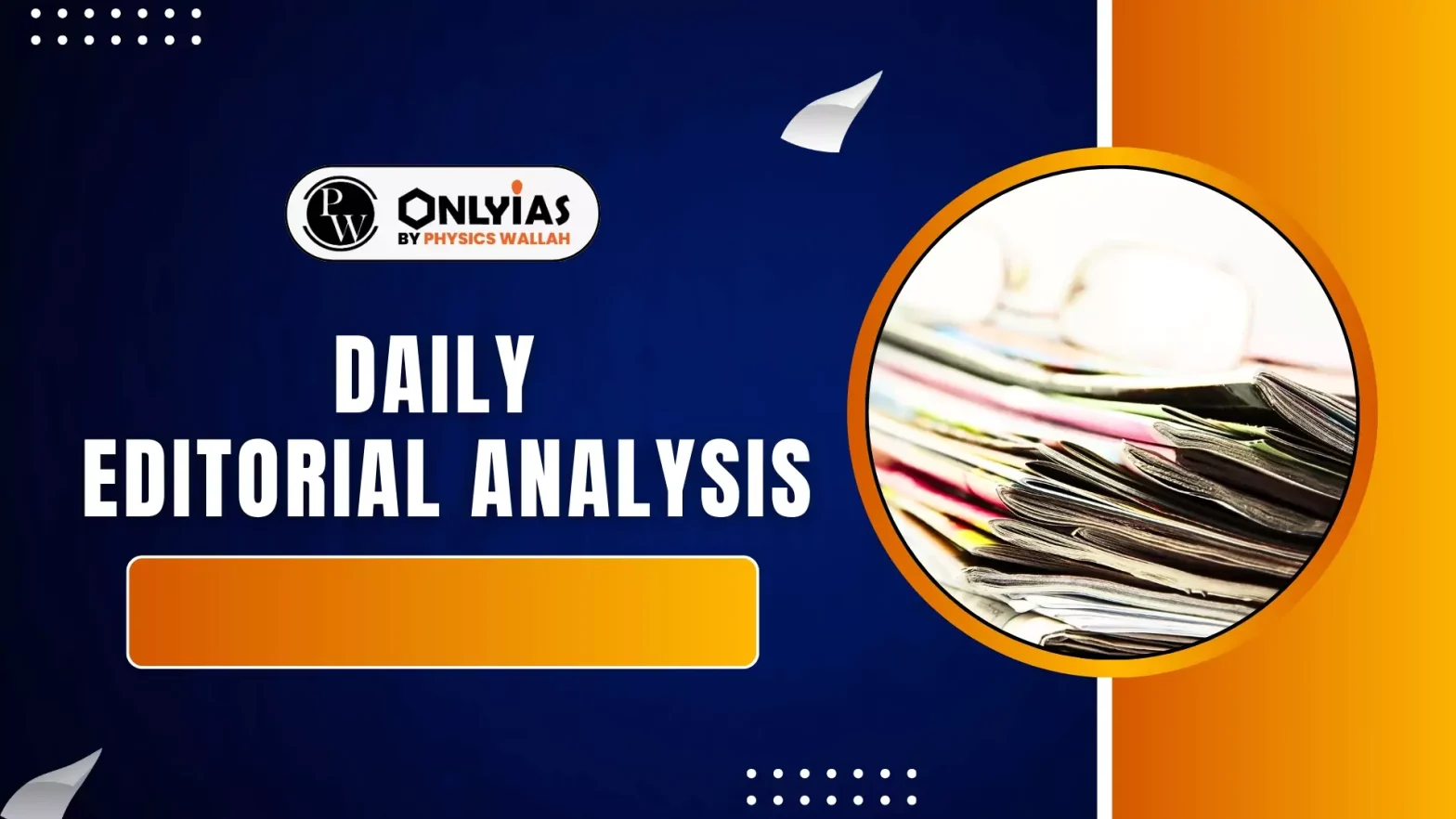The Supreme Court last week finished hearing arguments and reserved its opinion in the crucial reference made by President Droupadi Murmu on the powers of the President and Governors in giving assent to Bills.
Background on Governor’s Options (Article 200)
When a bill passed by a State Assembly reaches the Governor, they have four options:
- Give Assent: The Governor can give their consent, making the bill an Act.
- Withhold Assent: The Governor can reject the bill.
- This power is rarely used and cannot be exercised arbitrarily.
- The Constitution’s framers removed the “in discretion” clause present in the 1935 Act to ensure Governors act on the advice of the Council of Ministers.
- Return the Bill: The Governor can return the bill to the Assembly for reconsideration, possibly with suggestions for changes.
- However, if the Assembly re-passes the bill, with or without changes, the Governor is bound to give their assent.
- Reserve for President’s Assent (Article 201): The Governor can reserve a bill for the President’s consideration, especially if it diminishes the power of the High Court or is against the Constitution.
The Problem of Inaction (Pocket Veto)
- Issue of Indefinite Delay: A major issue arises when Governors do not exercise any of these four options and simply hold onto bills indefinitely.
- Pocket Veto Analogy: This practice is akin to a “pocket veto” and weakens democracy, as the will of the elected government is thwarted by an appointed Governor.
- Political Context: This inaction was particularly prevalent in opposition-ruled states such as Kerala, Tamil Nadu, Punjab, and Telangana.
Supreme Court Ruling on Governor’s Assent to Bills
- Judicial Intervention: Several states approached the Supreme Court regarding this inaction.
- Supreme Court Judgment: On 8 April 2025, the Supreme Court issued a judgment stating that Governors cannot indefinitely delay bills and must make a decision within a “reasonable time“.
- Binding Nature of the Judgment: According to Article 141, this Supreme Court judgment was binding on everyone, including the President and the government.
Central Government’s Alternative to Review/Curative Petition
- Choice of Presidential Reference over Review/Curative Petition: Instead of filing a review or curative petition (whose outcomes would also be binding), the Central Government opted for a Presidential Reference to seek clarity on the Supreme Court’s ruling.
- Scope of Article 143: Article 143 allows the President to seek an advisory opinion from the Supreme Court on legal questions.
- Non-Binding Nature of Advisory Opinion: Crucially, any opinion provided by the Supreme Court under Article 143 is not mandatory or binding on the President.
- Political Strategy Behind the Move: This move was seen as a “trick” by the Central Government to circumvent the binding nature of the 8 April 2025 judgment.
Supreme Court Hearing on Presidential Reference
- Constitutional Bench Composition and Status: A five-judge Constitutional Bench heard the Presidential Reference and reserved its final decision.
- CJI’s Concern on Democratic Impact: CJI Gavai questioned whether the Supreme Court should remain powerless while Governors weaken democracy and State Assemblies.
- Justice Vikram Nath on Governor’s Authority: Justice Vikram Nath remarked on whether Governors are “above the wisdom” of the Assembly.
- Limits of Governor’s Inaction: He stated that while Governors act as a “safety valve” to check constitutional validity, they must take a decision, as continuous inaction “chokes democracy”.
- Central Government’s Standpoint: The Solicitor General, representing the Central Government, argued that Governors serve as a “safety valve” to prevent hasty legislation.
- Kerala’s Argument on Political Misuse: Kerala’s lawyer argued that the issue isn’t constitutional ambiguity but “political misuse“, noting that Governors only delay bills in opposition-ruled states.
Democracy and Judicial Review
- Precedent for Judicial Review: When significant decisions like the imposition of President’s Rule (Article 356) are subject to judicial review (as established by the 1994 S.R. Bommai judgment), the Governor’s inaction on a bill (a “smaller” decision) should also fall under judicial scrutiny.
- Primacy of People’s Power: In any democracy, power should primarily reside with the people who elect their representatives.
- Supremacy of Elected Representatives: The decisions of elected representatives should, therefore, take precedence over those of an appointed official like the Governor.
Way Forward
- Respecting Supreme Court Orders: The Central Government should respect the Supreme Court’s 8 April 2025 order and direct Governors to make decisions on bills within a definite, albeit flexible, timeframe.
- Maintaining Centre-State Balance: India is a quasi-federal state, and the delicate power balance between the Centre and States should not be disturbed.
- Commission Recommendations on Timely Decision-Making: Commissions like the Sarkaria Commission and Punchhi Commission have recommended that Governors should decide on bills within a “reasonable time“.
- Ensuring Governor’s Impartiality: These commissions also suggested that Governor appointments should be kept away from “active politics“, preferring individuals like retired army chiefs, scientists, etc. to enhance the dignity and impartiality of the office.
![]() 17 Sep 2025
17 Sep 2025
